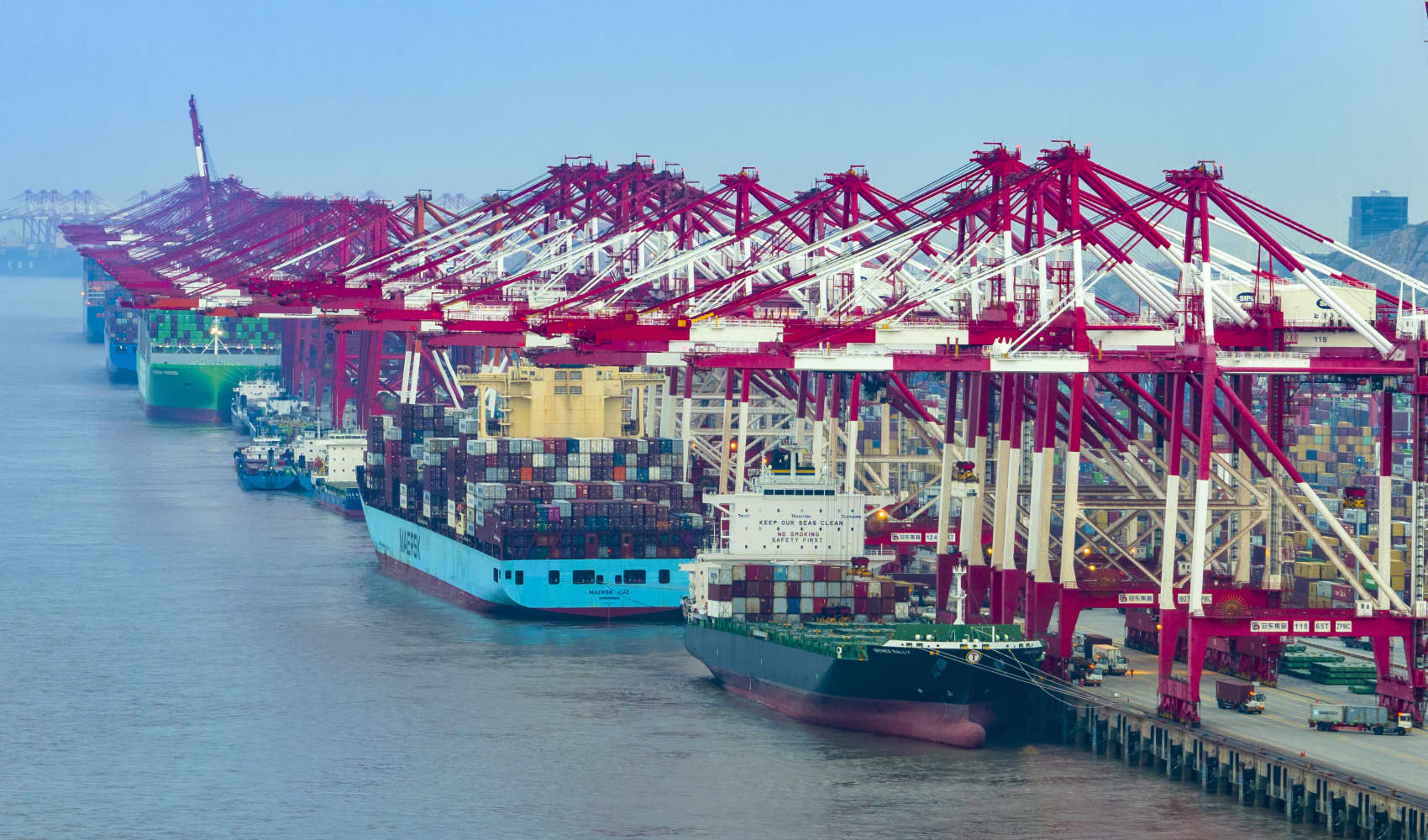American industries are reeling as escalating tariffs on Chinese imports lead to canceled orders and disrupted supply chains. Experts warn that without a broader pause in the trade war, the damage to U.S. businesses could soon become irreversible.
Trump tariffs on China will soon bring ‘irreversible’ damage to most American businesses

Key Takeaways:
- Trump’s tariffs on China are causing significant disruptions to U.S. businesses.
- Orders are being canceled across multiple industries, halting production.
- Experts warn the damage could soon become irreversible without action.
- Abandoned freight and supply chain issues are becoming commonplace.
- Small businesses are particularly vulnerable to sudden policy changes.
American Businesses Grapple with Tariff-Induced Disruptions
American businesses are facing unprecedented challenges as President Trump’s tariffs on Chinese imports escalate, causing widespread disruption across multiple industries. From furniture to toys, apparel, footwear, and sports equipment, companies are experiencing a complete halt in orders, and experts warn that without a broader pause in the trade war, the damage could soon become irreversible.
Impact on Various Industries
“Furniture producers in China have seen a complete halt in orders from U.S. importers, and we’re hearing the same across toys, apparel, footwear, and sports equipment,” said Alan Murphy, founder and CEO of Sea-Intelligence. This sudden stoppage is forcing businesses to reassess their supply chains and manage growing uncertainties.
Brian Bourke, chief commercial officer for SEKO Logistics, noted that canceled bookings for containers out of China had initially affected Southeast Asia but have now expanded. “Almost everything is on hold as it relates to China business,” added Alan Baer, CEO of OL USA.
Expert Warnings of Irreversible Damage
Economist Erica York, vice president of federal tax policy at the Tax Foundation’s Center for Federal Tax Policy, expressed grave concerns. “Trump’s 145% total tariff on Chinese imports would stop most trade between the U.S. and China,” she said. “There may still be some things without any substitutes that companies just have to foot the bill, but for the most part, that cuts it off.”
Industry leaders fear that the escalating tariffs will have lasting negative effects on the U.S. economy. Without a wider pause in the trade war, the damage inflicted on businesses may become permanent.
Challenges Faced by Small Businesses
Stephen Lamar, CEO of the American Apparel & Footwear Association, highlighted the severe impact on small businesses. “Many companies have no choice but to cancel orders,” he said. “The constant switchbacking means new tariff costs are not accurately presented or predictable until the goods arrive at the port, and the high rates are generating bills that can’t be paid. That is not a risk or burden small business can sustain.”
With no alternative sourcing on the horizon, particularly for smaller companies, the sudden lack of orders could lead to lost sales and widespread product shortages. “An extension of the trade war pause to U.S. imports from China is needed now before the damage is irreversible,” Lamar urged.
Supply Chain Disruptions and Abandoned Freight
Abandoned freight is becoming increasingly common as businesses halt shipments from China. Supply chain executives report canceled freight orders and the abandonment of Chinese goods as companies navigate the tariffs hitting “like a ton of bricks.”
Karsten Kildahl, chief commercial officer at A.P. Moller-Maersk, described the circumstances as “unprecedented.” The logistics giant warned that the drop in bookings, coupled with potential shipbuilding fees on Chinese vessels, would result in a “massive restructuring of all liner services to North America.” Maersk cautioned clients that it would take months to resolve the ensuing congestion and freight rate spikes.
Calls for Clear Policy and Action
Industry experts emphasize the need for a clear long-term plan from the administration. “The biggest concern here is a complete uncertainty of the actual end-game of the Trump administration,” Alan Murphy stated. “No one will consider massive investments in U.S. production if tariffs are merely a ploy to negotiate better trade deals.”
Murphy criticized the unpredictability of tariff rates, adding, “The yo-yo tactic of changing tariff rates on a daily basis does nothing but create uncertainty.” Without more predictable policies and a broader pause in the trade war, businesses fear that ongoing disruptions will have lasting detrimental effects.
Conclusion
As the trade war between the U.S. and China intensifies, American businesses are struggling to adapt to the rapidly changing landscape. The combination of high tariffs, canceled orders, and supply chain disruptions poses a significant threat to the economy. Industry leaders continue to advocate for immediate action to prevent irreversible damage and restore stability to the affected sectors.











